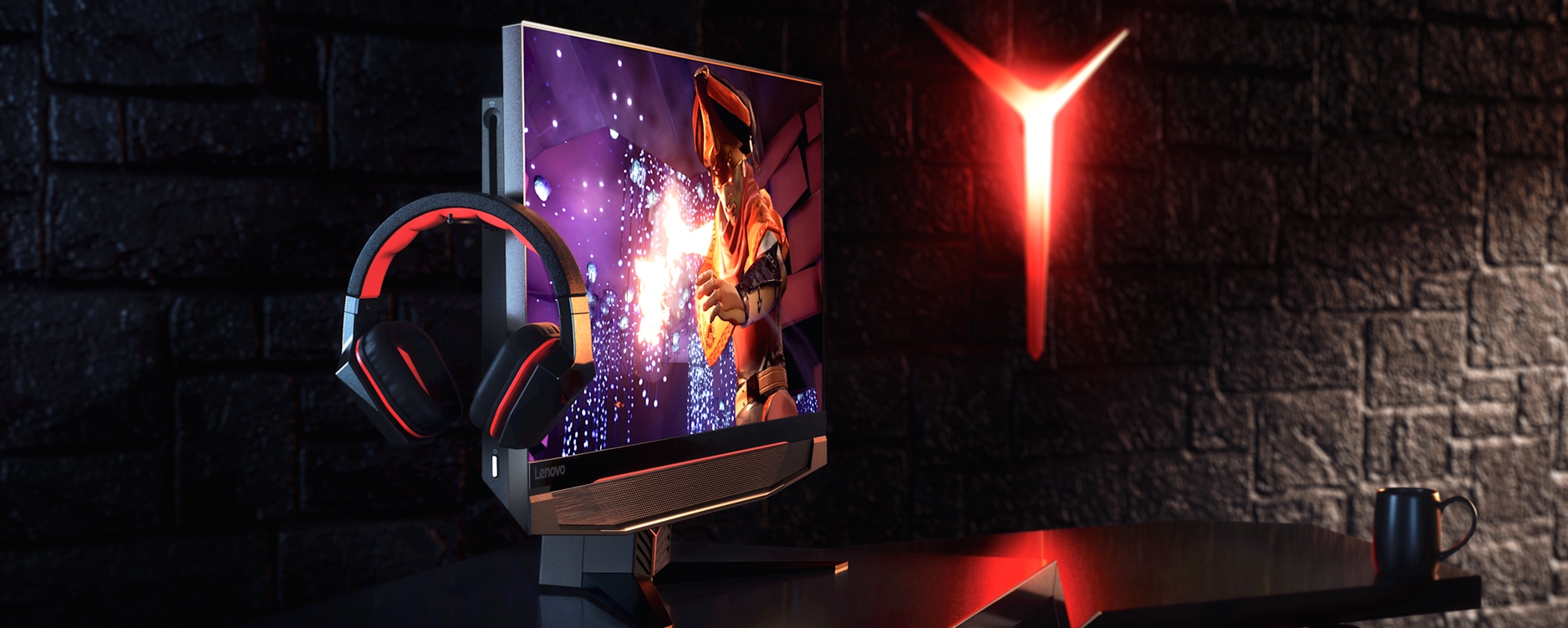Overall System and Gaming Performance
I ran various synthetic and real world benchmarks to put the Y910 through its paces. Right off the bat with Cinebench we know the Y910 is going to be a heavy hitter. The Core i7-6700 easily powers through the test, coming out on top in both single and multi-threaded workloads.
It also unsurprisingly tops the Intel Skull Canyon NUC6i7KYK. The NUC also features a 6th gen Intel core processor, i7-6770HQ, however the Core i7-6700 in our Y910 greatly benefits from an improved thermal design which allows for higher boost clock speeds.

WinRAR compression is another CPU heavy task. The Y910 is just edged out by the NUC in both single and multi-threaded applications, it's still much faster than nearly everything else we've tested.

Memory performance seems to be our first trouble spot as the Y910 had a poor showing here, coming in at only 22GBps. For those that use RAM intensive applications, upgrading to higher performance memory might not be a bad idea. As it stands, 22GBps isn't terrible, but I would have expected a bit better from a product in this price range.

SiSoftware's Sandra Cache Performance benchmark tests the CPU's internal cache. It's not something that the user can access, but it is a key element in making a fast processor. As expected again, the Y910 with its beefy i7-7600 comes out on top again. The NUC is also following closely behind due to the two sharing a very similar internal architecture.

The 7-Zip benchmark is very thread heavy so the Y910's 8 hyper-threaded cores had no problem eating up this test. The compression/extraction benchmark focuses on a system's overall CPU and memory performance. While the Y910's 6th gen core i7 is a generation old, it's still looking very solid so far.

Our HandBrake test focuses on the PC's ability to encode media. A computer needs fast storage, fast memory, and a powerful CPU to be able to encode media quickly. The Y910 easily beats out the competition here with an average 720p H.264 speed of 232fps.

Looking at encoding again from a different perspective, the Y910 also comes out on top of our x264 benchmark. The i7-6700 was able to boost up to 3.8GHz and power through this test as well.

Before moving on to gaming performance, I wanted to go over some more basic system results. Thanks to the internal high speed SSD, the Y910 had a full boot time of under 15 seconds. The SSD maxed out with a write speed of 1562MBps and a significantly slower read speed of 310MBps. The Y910 also comes with an additional spinning HDD for mass storage. Unfortunately, our review unit's drive was faulty so we weren't able to test it. There isn't too much to say about a standard 3.5" mechanical hard drive though and it didn't have an effect on the overall review.
Power consumption of the Y910 is unique since it also includes the built in 27" monitor. At an idle desktop, the Y910 pulled 87 Watts. With Prime 95 going to pin the CPU, this number increased to 184 Watts. Finally adding Furmark and Prime 95 together to completely max out the system, the Y910 pulled a healthy 444 Watts from the wall. Lenovo did right in including the power supply in the base of the monitor because an external power supply able to supply 444W would be massive.
Thermal performance is always going to be a letdown for an all-in-one. The Y910 does a respectable job though for the most part. At load, the temperatures jumped up to 80s and 90s even with the fan sounding like a jet a takeoff. GPU noise wasn't too bad, but once the CPU starts working, you'll want some good closed back headphones to try to drown out the fan. The pre-defined fan curves don't do much to help either. They are extremely abrupt which causes the fan to ramp up and down every few seconds. If it stayed at a constant volume, you may eventually be able to tune it out, but with the constant up and down, it becomes very annoying, very quickly.
Finally on to gaming performance; the Y910 is a gaming all-in-one after all. As expected, the GTX1080 with 8GB of memory is easily able to drive today's top games at their max. 1080p performance is extremely solid with the lowest recorded frame rate being 87 on Deus Ex: Mankind Divided. Bumping up to the screen's native 1440p resolution isn't a problem at all. You may not be able to play everything at max settings to do thermal throttling, but you can certainly get very close. Temperatures were in the mid 80s when gaming, but that target can be adjusted in your favorite overclocking program.

